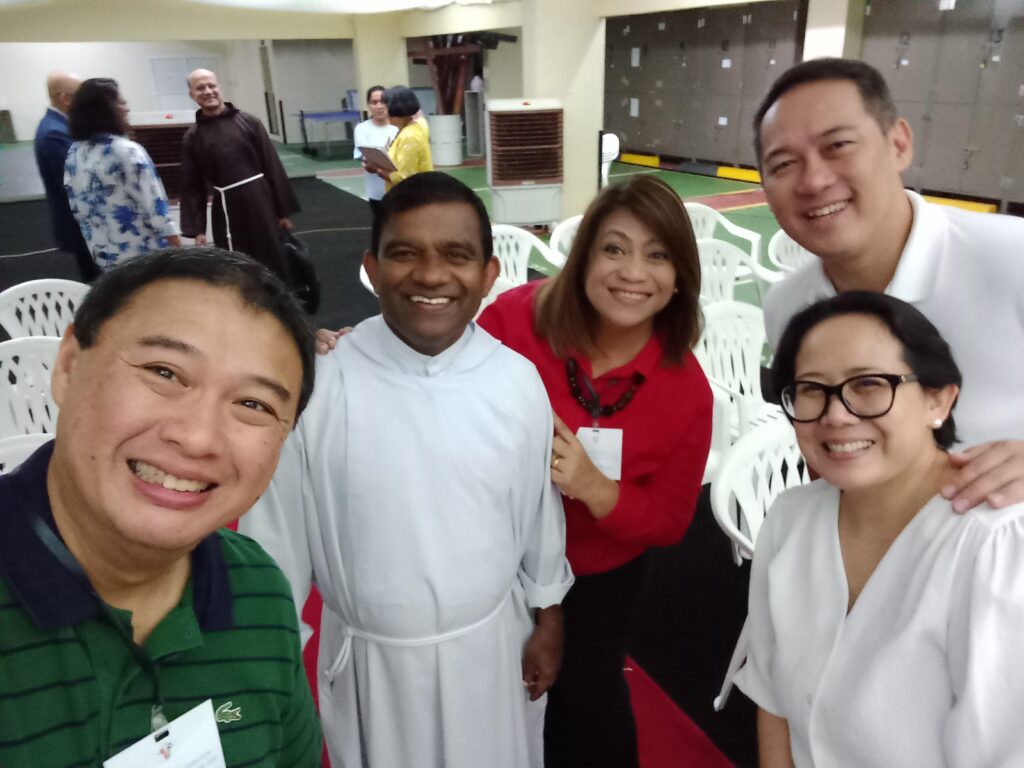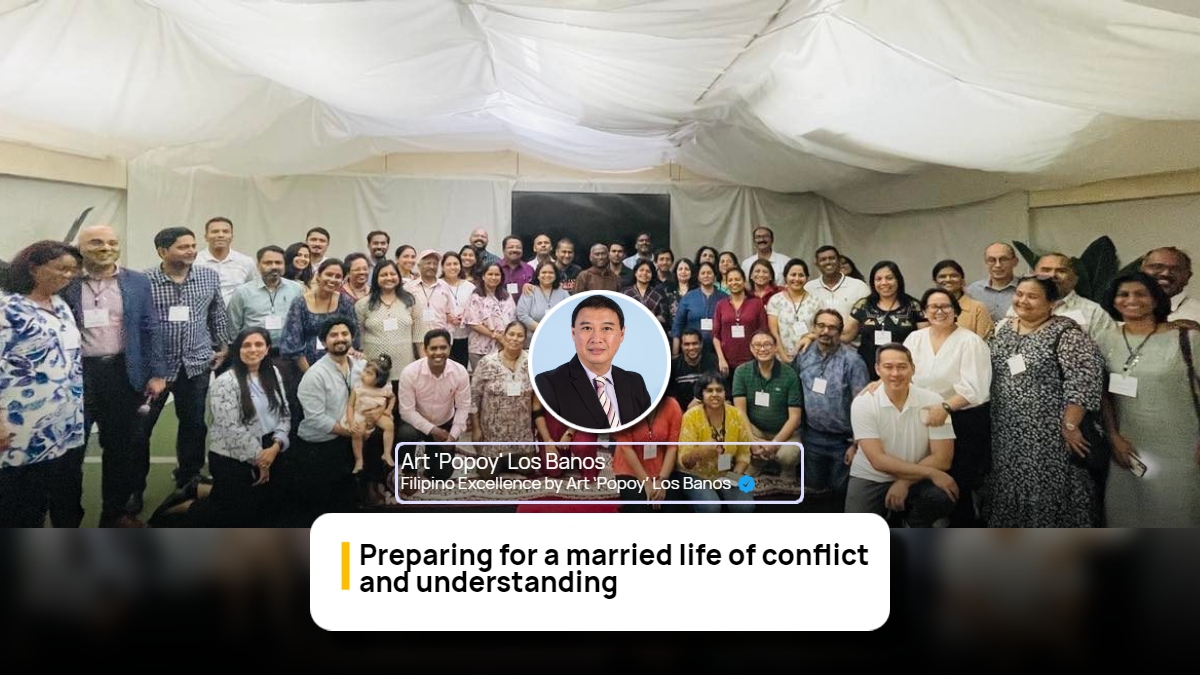My wife and I spent more than half of our weekend attending the ‘Marriage Preparation Course Train the Trainer’ program at St. Francis of Assisi Church in Jebel Ali. The program was conducted by Fr. Peter Fernando of the Apostolic Vicariate of Southern Arabia (AVOSA) Family Ministry, and husband and wife volunteer Merrill and Althea Correia. It was attended by couples from various parishes as far as Al Ain and the Northern Emirates.
We, the participants, will eventually be certified to conduct the Vicariate’s Marriage Preparation Course (MPC) designed to prepare individuals who are about to enter the Sacrament of Holy Matrimony. Attending the MPC is therefore a requirement to be married in church because the course aims to guide future couples to understand the importance of the sacrament, introspectively reflect why they want to get married, understand each other better, and discuss how to tackle the hurdles that may follow, among others.
We sat together with Fidel and Marge Diaz, our brother and sister in CFC in Jebel Ali. They are married for 24 years while my wife and I are celebrating our 27th anniversary this May 18.

I used to be a regular facilitator of the MPC at St. Mary’s Church in Dubai specializing in ‘Communications’ and ‘Conflict Management’ from 2013 to 2016. Most of my talking points are from the manual of the CFC Marriage Enrichment Retreat courses 1 and 2. In 2017, the AVOSA came out with a comprehensive MPC module which all facilitators should follow. Since I was not able to undergo the ‘Train the Trainer’ program at that time, I stopped giving MPC talks and became busy with my pastoral responsibilities as an ‘elder’ and ‘mission country coordinator’ of CFC starting 2017.
The evening of April 28 and whole day of April 29 could be the road back for me and my wife to become MPC facilitators again. Fr. Fernando said that we everyone must ‘pass’ a test which he will give a few weeks from now to be certified as MPC facilitators.
I want to share these ‘Communication’ tips with you, dear readers, which I had given during my earlier MPC years:
- Be willing to become a dumping ground of your spouse.
They say that men are from Mars and women are from Venus. When you ask your wife how was your day and she will go like this…when I left the building, I saw blah blah blah… then while driving along Sheikh Zayed Road there was an accident…. blah blah blah……once I reached the office my colleague….. blah blah blah……and she will finally say my day was Okay. How about you when she asks? My answer: well, it was Okay.
So, listen always to your wife’s story. Women love to share their daily activities even when you already want to go to sleep. Listening skills improve marital relationship.
- Stick with the main issue and only handle one issue at a time.
When you have a small discussion on cooking then focus if you want it sweet or sour. Do not deviate to other topics like doing the laundry or cleaning the house. Do not let a small issue become a big argument. One issue at a time.
- Listen and do not interrupt and lose your temper.
You see when one is raising his or her voice and you remain calm and compose then you will not get tired. But if you yell back and answer endlessly then expect ballistic missiles.
- Don’t say I can’t take it anymore. I don’t want to talk about it. I’m leaving.
When you say I can’t take it anymore then you give up. When you say I don’t want to talk about it then when will you ever talk about it. When you say I’m leaving then where will you go?
Patience is the most important skill you need to develop if you wish to get things done. And this helps you save your marriage. I also advise the participants to stick with these beautiful words: I promise not to hurt you. I love you just the way you are. Whatever it takes.
In addition, here are some common causes of conflicts: unrealistic expectations; lack of consideration, respect, or appreciation; lack of open affection or public acknowledgment of love; inflexible gender roles; wanting partners to change; taking each other for granted; financial instability; inability to forgive; and problems with in-laws and family involvement.
Differences in opinions, values, desires, needs, and habits are the stuff of daily living with one another. Though most of us would rather avoid conflict, we can’t if we are to maintain our marriage relationship. Most conflicts can be resolved either as a couple or with the help of a trained outside third party like marriage counsellor or clergy. What is necessary is the commitment of both spouses to the ongoing welfare of their relationship.
If you are planning to get married, then prepare yourself for a life that you will need to give a lot of yourself to your spouse. If you are already married, then continue the journey of intimacy with a lot of understanding and forgiveness.

